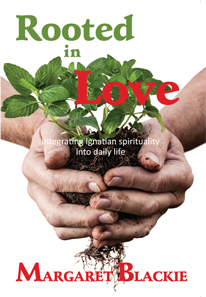THE
WAY
a
review of Christian spirituality |
|
If you would prefer not to hear about new issues of The Way, or if you are receiving more than one copy of our message, please click here
To order this new issue of The Way only, please click HERE.
Please click here to subscribe to The Way.
Mary Frances McKenna
The Church in Dialogue with New Scientific Atheism
Does the fact that the natural world appears to be governed by laws require that we postulate a law-giver in our attempts to understand it? For Mary Frances McKenna, this is the basic philosophical question insufficiently considered by proponents of the new scientific atheism, and it is the kind of question that those with Christian faith need to address.
Download this article in PDF format by clicking here
Keith Ravenscroft
What Does It Mean to Be a Person? The Constraints of Atheism versus the Abundance of Christian Faith
Keith Ravenscroft ‘spent most of [his] adult life as a hard-line atheist’, and here contrasts the outlook of that position with that of his new-found faith. He now believes that the atheistic world-view is a narrow and incomplete one, nowhere more so than in its understanding of the human person.
Joseph Lee
The Brain and the Soul
Recent scientific advances in our understanding of how the human brain works can seem to make the idea of a soul redundant. Here Joseph Lee argues that, properly understood, the functions of the brain and the soul should be seen as complementary, and that any attempt to explain one without considering the other is at best impoverished.
Isabel Clarke
Beyond the God Spot: Transcendence and the Brain
How far can neuroscience go in providing an explanation of religious experience? Reductionist accounts assume that they have completely explained away such experience. Isabel Clarke postulates instead a path of experiential knowing, which is distinct from that of precise logical processing and which enables human beings to be open to transcendence.
Chad Thralls
Don't Forget to Look at the Trees: A Spiritual Path from the Beauty of Nature to Ethical Action
Abraham Heschel was a twentieth-century Jewish writer who outlined a spiritual itinerary that begins with an appreciation of God through nature. Here Chad Thralls shows how Heschel’s thought can help Christians make a clearer link between such appreciation and their own quest to live moral lives.
Peter Feldmeier
Interrelatedness and Spiritual Masters: Why Martin Buber Still Matters
Hasidism is a movement within Judaism, originating in the eighteenth century in reaction to the rather dry and cerebral outlook then prevailing in that faith. It is best known to Western readers through the work of Martin Buber. Peter Feldmeier outlines what this approach to God might have to offer contemporary Christianity.
Eamon Maher
Albert Camus and the Dilemma of the Absent God
The year 2013 marked the centenary of the birth of Albert Camus. In this article Eamon Maher considers Camus’ writing on religion, focusing in particular on two novels, The Outsider and The Plague. They offer a powerful analysis of the seeming absence of God from a world of suffering, a challenge for all who profess Christian belief.
Kenneth Overberg
Aggiornamento as Healing
Commemorating Vatican II’s Fiftieth Anniversary
Fifty years ago the Second Vatican Council was meeting in Rome. Pope John XXIII had called upon the Council to provide the Church with an aggiornamento (‘updating’). Kenneth Overberg sees this updating as a process of healing, of divisions which existed within the Church at that time, of the divide separating Catholicism and other denominations and religions, and of the gulf between the Church and the world.
George B. Wilson
Leaving ‘the Church’: A Painful Blessing?
Over the last few decades, many people have abandoned the practice of formal religion, or ‘left the Church’, often claiming to have been disillusioned by its various failures. George Wilson offers an analysis of this situation which suggests that in many cases what these people originally had was precisely an illusory view of what the Church can or should be.
To order this new issue of The Way, please click HERE.

|
This book is a blend of the principles of Ignatian spirituality and life experience.
Tracking through desire, discernment, prayer and grace Margaret Blackie offers some pointers on living a life of faith.
In the author’s words: ‘What I most love and value in Ignatian spirituality is that it is a spirituality which teaches us to deal with desire…Ignatius was not afraid of the
chaos of daily life. Rather he was utterly convinced that God is present in all of it. If we can just bring ourselves to pause for long enough to notice, we will not be able
to miss God’s presence in our lives.’
About the author:
Margaret (Mags) Blackie is a spiritual director, a scientist and an educator. She worked for four years as a spiritual director in the UK before returning to South Africa. She
holds an academic position at Stellenbosch University near Cape Town. Currently her challenge is to hold together medicinal chemistry, science education and Ignatian
spirituality, and allowing cross-pollination between these rather disparate fields! She recharges by walking in the mountains of the beautiful Western Cape.
Price: £10.00
ISBN: 978 0 904717 43 3 |
You have received this e-mail because you have been in touch with us in the past. We will be sending out this kind of promotional e-mail at approximately quarterly intervals, but we are anxious not to send information to anyone who does not want to receive it. If you would prefer not to hear about new issues of The Way, or if you are receiving more than one copy of our message, please click here. Note that if you e-mail The Way again, you may need to unsubscribe again—our mailing list is maintained manually!
